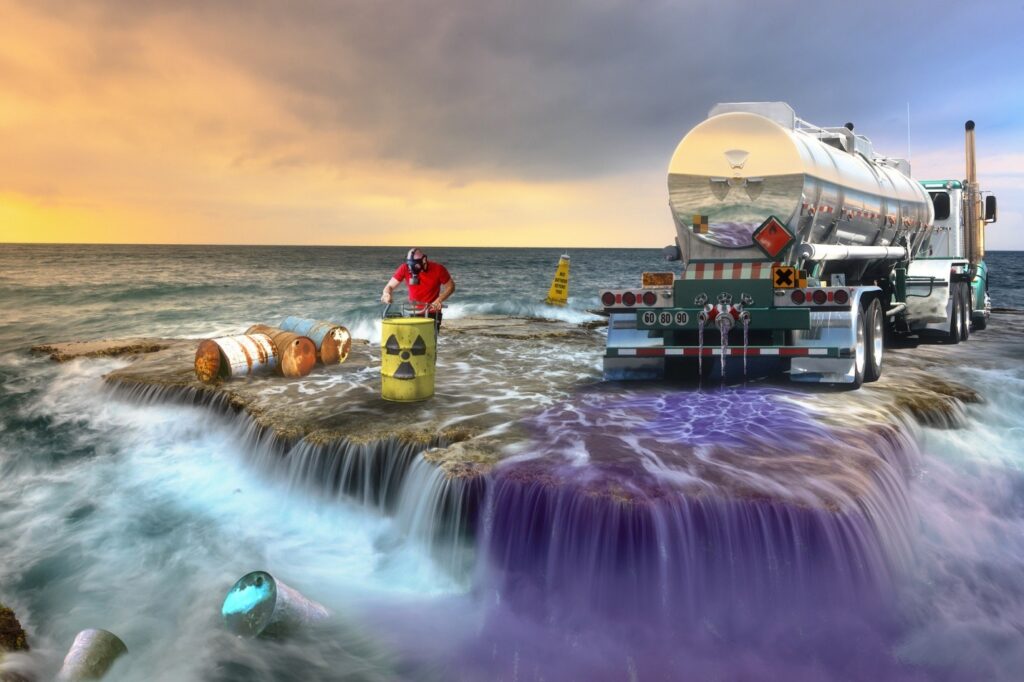Reclaim Waste - The Facts
Reclaim Waste - The Facts
Blog Article
Not known Facts About Reclaim Waste
Table of ContentsThe smart Trick of Reclaim Waste That Nobody is Talking AboutReclaim Waste Things To Know Before You Get ThisThe Basic Principles Of Reclaim Waste Reclaim Waste Things To Know Before You Get ThisFascination About Reclaim Waste
Domestic sewage waste refers to the waste and items from a domestic septic tank. The correct administration and disposal of residential sewage waste require liquid waste to be moved to a sewer therapy plant where the appropriate approaches and equipment are applied to purify and dispose of waste.
Business waste typically includes potential dangers, such as combustible products or a mixture of fluid and strong waste items, and needs an advanced and detailed disposal procedure. The disposal of commercial waste usually includes the filtering of waste prior to transportation to ensure safe and appropriate disposal. Industrial waste is created from byproducts and drainage of industrial processes and manufacturing.
This kind of waste can not use the exact same sewer administration transportation or procedures as septic or business liquids. The commercial waste monitoring procedure needs the evaluation and screening of fluid waste before it goes through the disposal procedure (liquid waste disposal melbourne). Overflow waste is the liquid waste that comes from drainage and excess stormwater in extremely populated areas or cities
Runoff waste can trigger contamination and flooding if not dealt with correctly. Guaranteeing appropriate waste monitoring can protect against calamities and decrease ecological injury.
Reclaim Waste Can Be Fun For Everyone
Call PROS Services today to learn more about our waste management and disposal services and the correct methods to look after the fluid waste you produce.
(https://medium.com/@leonaube33101/about)Do you know what happens to your water when you pull the plug, purge the commode or drain pipes the cleaning maker? No? Well, it deserves understanding. This supposed 'wastewater' is not just a crucial source however, after therapy, will certainly be released to our land, waterways or the sea. Used water from commodes, showers, baths, kitchen sinks, washings and commercial procedures is understood as wastewater.

water utilized to cool down machinery or tidy plant and equipment). Stormwater, a type of wastewater, is runoff that moves from agricultural and urban locations such as roof coverings, parks, gardens, roadways, paths and gutters into stormwater drains pipes, after rain. Stormwater moves untreated directly to local creeks or rivers, ultimately getting to the ocean.
5 Easy Facts About Reclaim Waste Described
In Queensland, a lot of wastewater is dealt with at sewage therapy plants. Wastewater is transported from residential or industrial sites via a system of sewers and pump stations, referred to as sewage reticulation, to a sewer treatment plant. Regional this hyperlink federal governments develop, keep and operate most sewage therapy plants. Operators are certified under the Environmental Management Act 1994 to discharge treated wastewater at an appropriate ecological requirement right into waterways.
The Department of Natural Resources recommends neighborhood governments regarding managing, operating and keeping sewage systems and treatment plants. In unsewered locations, local federal governments may need owners to mount individual or house sewage treatment systems to deal with residential wastewater from toilets, kitchen areas, shower rooms and washings. The Division of Natural Resources authorizes making use of household systems when they are proven to be reliable.
In some brand-new communities, treatment of some stormwater to get rid of trash, sand and gravel has actually begun making use of gross contaminant catches. Wastewater treatment takes place in 4 stages: Gets rid of solid issue.
Wastewater then streams right into large containers where solids work out and are gotten rid of as sludge. Grease and residue are skimmed from the surface. Utilizes little living organisms referred to as micro-organisms to damage down and eliminate continuing to be dissolved wastes and great particles. Micro-organisms and wastes are integrated in the sludge. Eliminates nitrogen and phosphorus nutrients that can trigger algal flowers in our rivers and endanger water life.
Little Known Questions About Reclaim Waste.
Nutrient removal is not available at all sewage treatment plants because it calls for expensive specialised tools. Clear liquid effluent created after treatment may still consist of disease-causing micro-organisms - industrial wastewater treatment.

Most wastewater flows right into the sewerage system. Under the Act, neighborhood federal governments administer authorizations and licences for environmentally pertinent activities (Periods) involving wastewater releases that may have a regional impact.
4 Easy Facts About Reclaim Waste Shown
Tracking supplies factual info regarding water high quality and can verify that permit conditions are being met. The information gotten with surveillance supplies the basis for making water quality choices.
Report this page